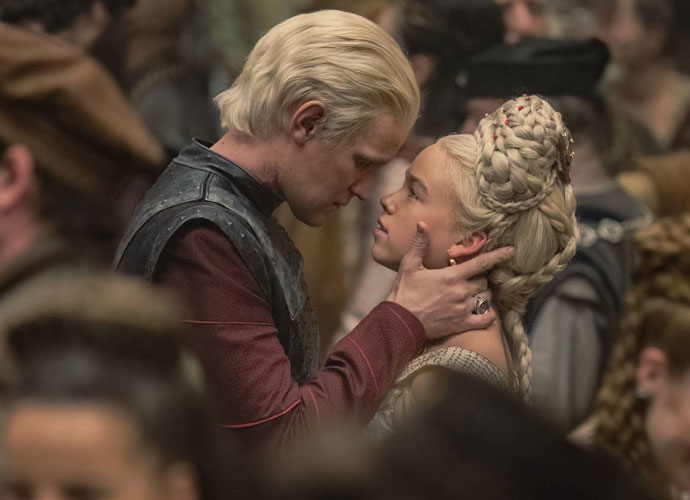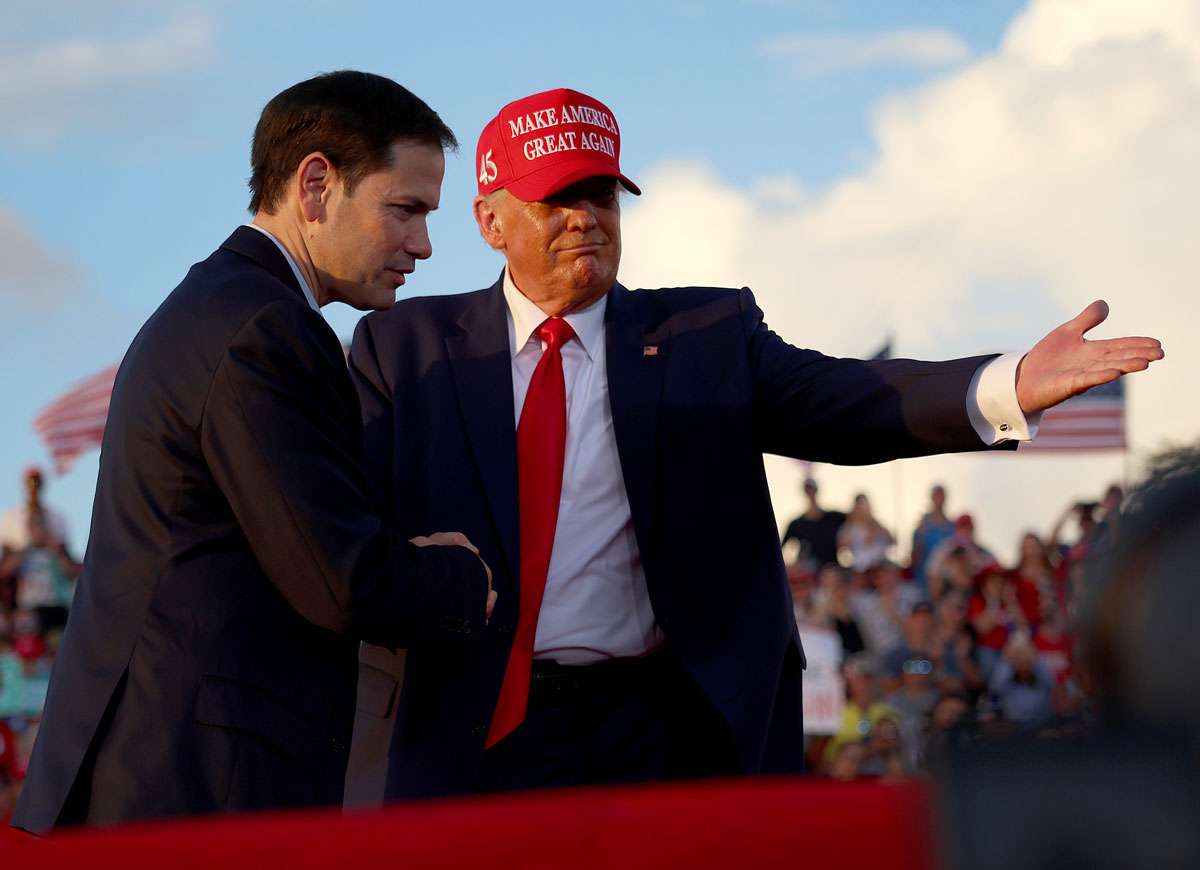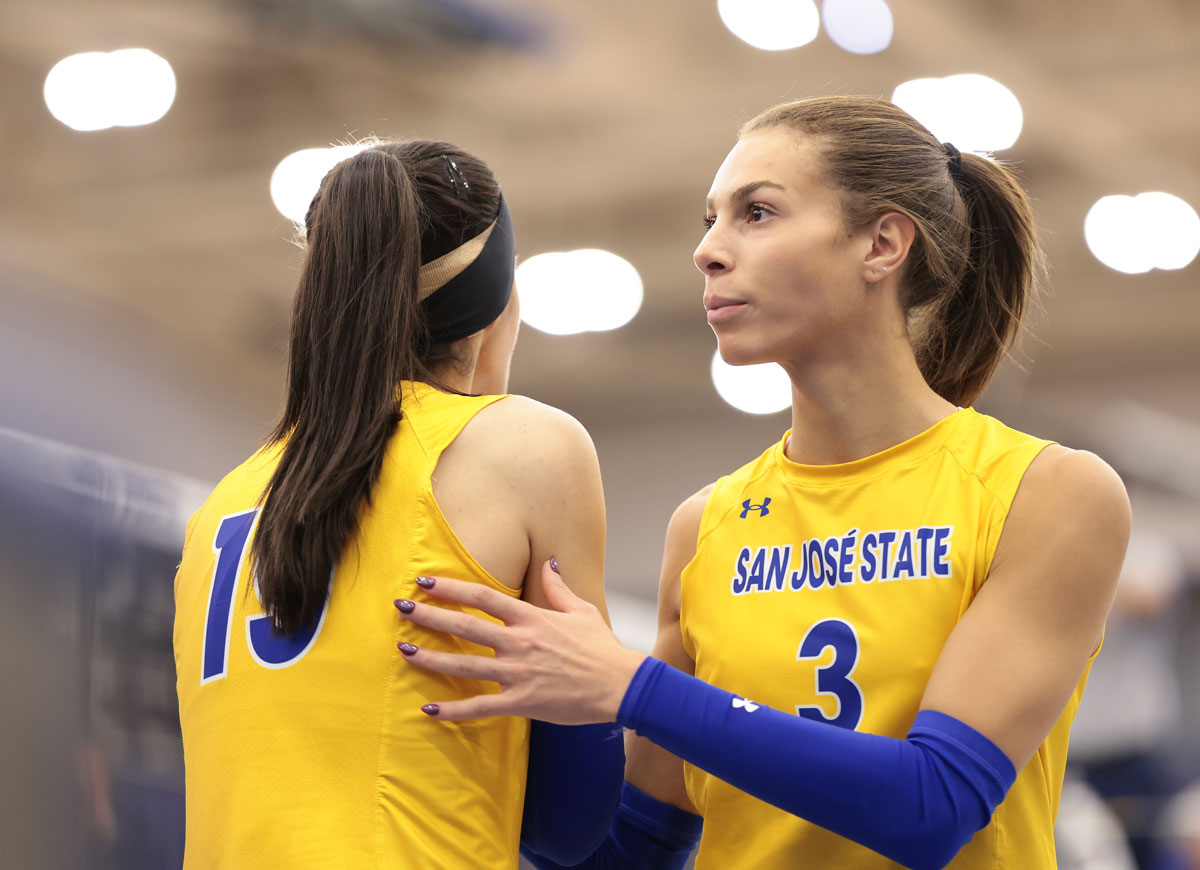‘House Of The Dragon’ Episode 6: Westeros Needs Therapy

4/5
(This article contains spoilers for House of the Dragon Season 2 up to Episodes 5.)
House of the Dragon Season 2 is building to its (hopefully dragon-y) conclusion. With Aemond (Ewan Mitchell) serving as Prince Regent, the power dynamic within Team Green remains in a state of flux. Aegon (Tom Glynn-Carney), revealed last episode to have survived his injuries (for now), is bedridden. Meanwhile, Rhaenyra (Emma D’Arcy), unsure if Daemon (Matt Smith) intends to support her in the war, pursues a wild act of faith in the hopes of gaining an advantage. Daemon is still away from Dragonstone, suffering the hallucinogenic affects of the reputedly cursed castle Harrenhal as he attempts to gain support in the Riverlands.
Season 2 has gotten repetitive in multiple respects – core themes continue to manifest in single threads of cause and effect (for example, women’s disempowerment in Alicent’s minimization, or battling internal psychology in Daemon’s ventures at Harrenhal) – but this episode introduces some new plot elements and does quite a bit for character development. There’s some interesting exploration of psychology in the direction and acting. “In a way, [this episode is] a boiling over of all these things that have been simmering for so long,” says showrunner Ryan Condal. Episode 6 does indeed see the eruption of violent, vengeful and romantic tensions.
Over the season, Daemon has experienced visions in Harrenhal that have thus far appeared to further destabilize an already unpredictable character. Condal explained that “part of Daemon’s story at Harrenhal…is having to face and atone for the sins of his past.” Episodes 3 and 4 brought back Milly Alcock as young Rhaenyra and Nanna Blondell as Laena, Daemon’s first wife, for him to reckon with.
In Episode 5, his visions seemed to validate his right to the Iron Throne; his response brought to light the possibility that he could betray Rhaenyra and stake a claim to what he may still see as his birthright. In contrast, Episode 6 recreates scenes from the first episode of Season 1. Brotherhood is a major theme in the plotlines of this episode, Daemon’s being no exception. How he meets his visions this time notably diverges from the anger and dissatisfaction displayed throughout the season, perhaps introducing a turning point in what Smith describes as “a journey of discovery and unraveling.”
Despite Alicent’s (and indeed the audience’s) suspicions that Aemond intended to kill or injure Aegon in Episode 4 for the purpose of taking the throne, he has held his new position. His actions at the small council give us a more comprehensive look at the complexities of the character. Where Aegon’s leadership was informed by feelings of inadequacy, Aemond is, as explained by Episode 6 director Andrij Parekh, “driven by a very cold rationality.” Condal describes him as “the ultimate pragmatist”; his decisions are based in the inevitabilities of his world view. Aemond is a dominating presence, but there’s something more complex here.
Mitchell conveys Aemond’s internal struggle in his performance, integrating reminders of the character’s youth and where it weaves into or interferes with his hard logic. Ultimately, Aemond is a complicated personality trying to address childhood trauma with vengeance. Pragmatism would dictate that he won’t let his emotion cloud his judgment – perhaps unsurprising given the loss of an eye and the death of Rhaenyra’s son in his past instances of lost composure – yet revenge is strongly rooted in emotion. This little discrepancy will likely define the direction of the war and the show’s conclusion.
Episode 6 introduced a new storyline for Rhaenyra that I expect to unfurl further in the next installment. Without giving away the details here, I’m excited by the expansion of certain ideas and have big hopes for how it will influence the show thematically.
For me, the jury is out on whether this episode’s focus on character, presumably right on the cusp of some major losses, will be effective in the big picture. I enjoyed much of what this episode tried and often succeeded doing in terms of character and setting up the impending season climax. Whether the audience’s deepened investment in certain characters and relationships will pay off in the Season 2 finale remains to be seen.
RELATED ARTICLES
Get the most-revealing celebrity conversations with the uInterview podcast!





Leave a comment